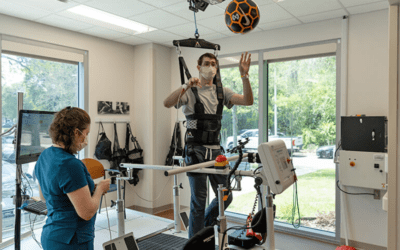The interaction between nutrition and neurology has gained increasing recognition. Various studies show malnutrition and nutritional imbalances as a cause and result of certain neurological pathologies.
Conversely, certain neurological conditions, like stroke, dementia, Parkinson’s disease, and autism spectrum disorders, lead to a higher susceptibility to nutritional deficiencies, gastrointestinal disorders, and feeding difficulties.
Let’s learn the relationship between various nutrient imbalances and neurological conditions as well as the potential use of various nutraceuticals and dietary plans in the prevention and treatment of certain neurological disorders.
Standardised scales and frequent screening in neurological patients with high susceptibility to nutritional deficiencies can assist physicians and caregivers in predicting, monitoring, and preventing severe malnutrition and associated health problems, and their use in clinical practice is promising…

Role of Nutrition
- Excessive or inadequate levels of certain nutrients as a result of malnutrition, illness, or the intake of specific drugs cause or exacerbate certain neurological symptoms and disorders. So, the right nutrition plays a crucial role in neurological wellness.
- Both macronutrients and micronutrients play a vital role in the proper functioning of the nervous, cardiovascular, and immune systems, and changes in their levels, which may occur due to illness, malnutrition, or supplementation, can result in a broad range of clinical manifestations.
- The relationship between mealtimes and circadian rhythm in disease pathogenesis has also been shown in studies on chrononutrition, and it has been observed that eating at inappropriate times may lead to metabolic alterations and circadian rhythm desynchronization, which are factors that play a role in the development of chronic disease and cognitive decline. So, proper mealtime is necessary.
- The results of studies show that individuals who consume high-energy meals at the beginning of the day have a better cognitive status than those whose meal patterns are characterized by low-energy meals oriented towards the end of the day.
- Nutrient-dense diets, such as the Mediterranean diet or diets high in omega-3 fatty acids, have neuroprotective and cardiometabolic benefits, while diets high in processed foods and saturated and trans fats are thought to play a role in low-grade systemic inflammation, which in turn contributes to the neuro-inflammatory mechanisms involved in the pathogenesis of degenerative diseases and depression.
- There is increasing evidence of the potential use of vitamin D supplementation in patients with Alzheimer’s disease, Parkinson’s disease, and other neurological diseases.
- The Keto Diet is thought to create an anti-seizure state by increasing inhibitory effects mediated through adenosine A1 receptors as well as by enhancing chemical messengers in the brain.
- The therapeutic role of vitamin B6 supplementation in patients with peripheral neuropathy has been suggested in many studies; however, the exact efficacy is yet to be understood, because B6 was administered as part of a combination treatment containing other vitamins and not as a monotherapy.
Whole foods rich in specific nutrients like curcumin and omega-3 fatty acids can increase brain-derived neurotrophic factor levels. It supports neuronal function and recovery. It plays a role in synaptic and cognitive plasticity, promoting learning and memory.
Thus Nutrition plays a vital role in supporting neurological wellness and preventing diseases.



